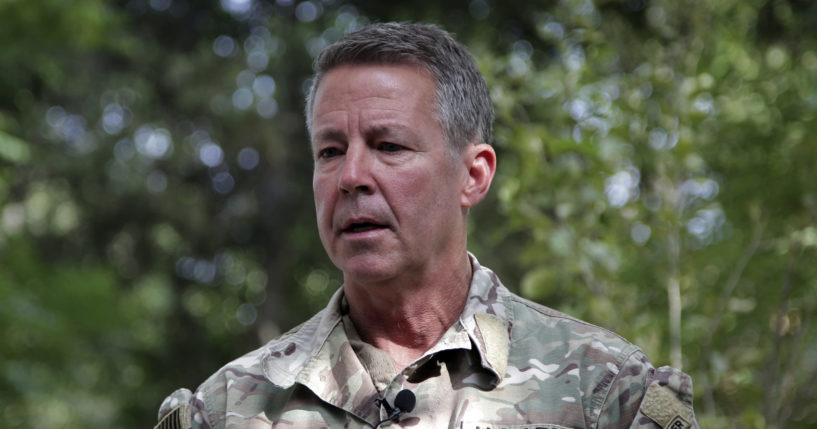
Top US General Warns Afghanistan at Risk of Civil War as American Troops Pull Out
The top U.S. general in Afghanistan on Tuesday gave a sobering assessment of the country’s deteriorating security situation as America winds down its so-called “forever war.”
Gen. Austin S. Miller said the rapid loss of districts around the country to the Taliban — several with significant strategic value — is worrisome.
He also warned that the militias deployed to help the beleaguered national security forces could lead the country into civil war.
Miller told a small group of reporters in Kabul that for now he has the weapons and capability to aid Afghanistan forces.
“What I don’t want to do is speculate what that [support] looks like in the future,” he said.
Washington signed a peace deal with the Taliban in February 2020.
It included the promise of a U.S. withdrawal and commitments by the Taliban to ensure Afghanistan does not harbor militants who could attack the U.S. The details of those commitments have never been made public.
The Taliban has accused Washington of breaking the agreement, which called for all troops to be out of Afghanistan by May 1, the date the final withdrawal began. It’s not clear whether the insurgent group has kept its end of the deal.
American officials have said the pullout of U.S. troops will most likely be completed by July 4.
But Miller refused to give any date or timeframe, referring only to the Sept. 11 deadline given by President Joe Biden in April when he announced the withdrawal of the remaining 2,500 to 3,500 American troops.
Meanwhile, Taliban fighters have been overrunning districts in rapid succession, many of them in the north of the country.
Miller said the escalating violence puts the country at risk of falling into a civil war.
“As we start talking about how does this all end, the way it must end for the Afghan people is something that revolves around a political solution,” he said.
“I’ve also said that if you don’t reduce the violence, that political solution becomes more and more difficult.”
He said his time as the head of the U.S. military mission in Afghanistan was coming to an end, without giving specifics.
Miller wouldn’t speculate on the legacy of America’s longest war.
“The future will tell the rest of the story,” he said. “What we will have to do is make an honest assessment of what went well and what didn’t go so well over the years as we work forward.”
The Western Journal has reviewed this Associated Press story and may have altered it prior to publication to ensure that it meets our editorial standards.
Truth and Accuracy
We are committed to truth and accuracy in all of our journalism. Read our editorial standards.
Advertise with The Western Journal and reach millions of highly engaged readers, while supporting our work. Advertise Today.












